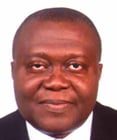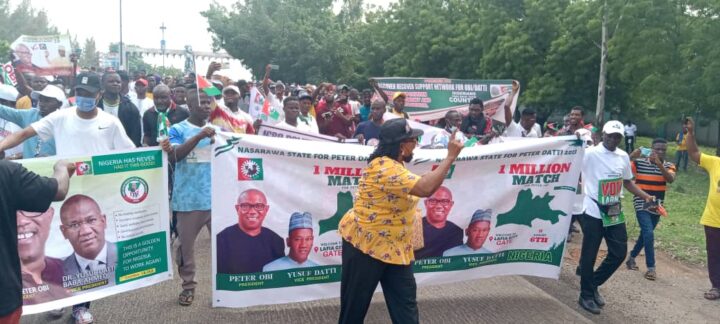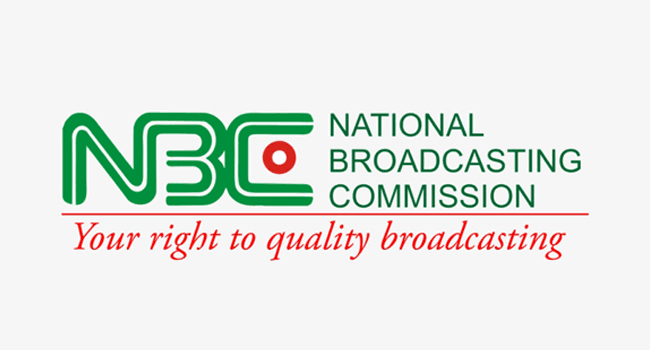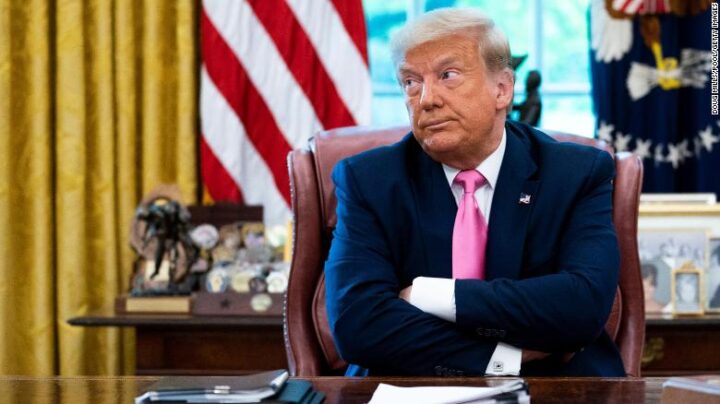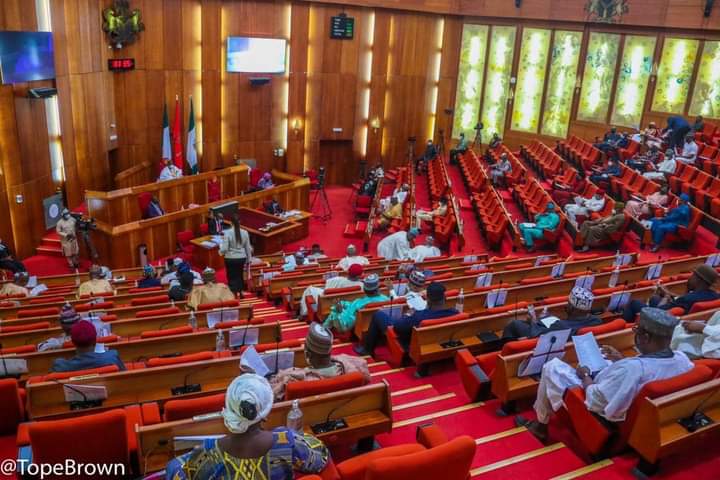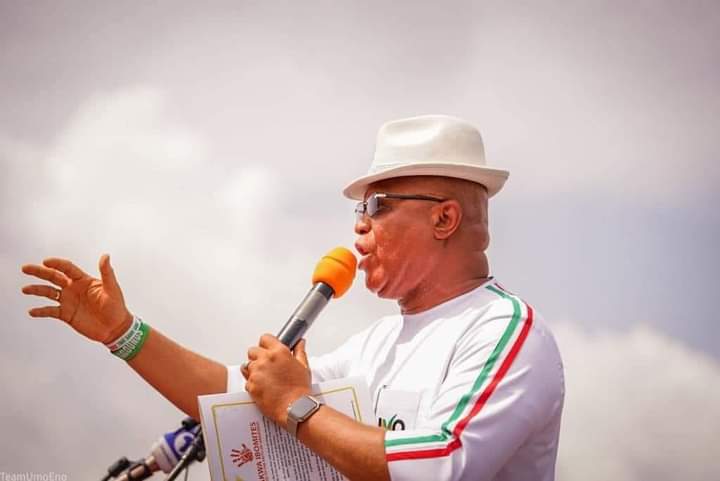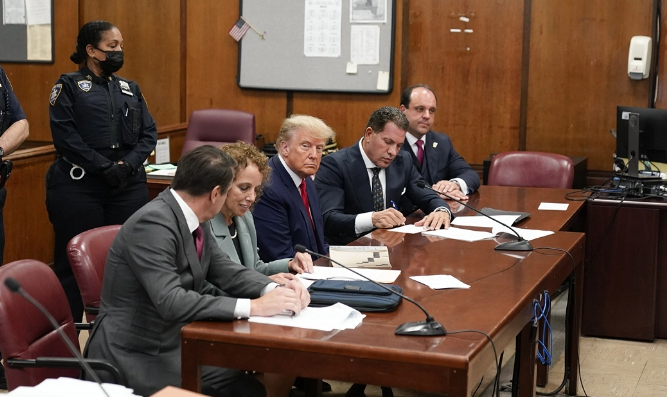Nigeria’s political environment has assumed a new but disappointing and frightening mob culture over an election that has been won and lost. In a previous article, I pleaded for peace and asked that we should stand together as we await the outcome of the petitions at the election tribunal. I am sure I was not asking for too much.
Understandably, there are frayed nerves and bitter emotions exerted in the form of intimidation, cyber-bullying and hate speeches, but we do not have to burn down the country because of one election. Have we forgotten that Nigeria belongs to all of us or should we create two green-white-green countries as Donald Trump did when he created two Americas? That would not be a good idea.
Since 1999, we have been taking learnings from every election cycle and there is always room for improvement. This year, we conducted our 7th general election, however flawed these elections might have been. Isn’t that a good thing and something to cheer?
The reactions that have trailed the presidential election since February 25 give the impression that some people own Nigeria more than the rest of us simply because Peter Obi, presidential candidate of the Labour Party (LP), lost an election.
Advertisement
I have friends, classmates and colleagues who are Obidients and supporters of Peter Obi. That is the beauty of democracy; it allows for freedom of choice. There are family members who belong to different political parties but they still eat and drink together. In the last presidential election, I know a couple that voted for different parties. They are still living together. Why should our political differences separate us?
I have a brother who is an Obidient. He was very hopeful that Peter Obi would be declared the winner. I have long-standing associates at work (both in Nigeria and the diaspora) who are also Obidients but we understand that our political affiliations and worldviews will not affect our work and relationship.
Our agreement is that superior arguments based on facts – and not emotions and sentiments – should always prevail. Personal attacks are also forbidden, although in many chat rooms, that is the order of the day. Many participants spew garbage in their attempt to “take Nigeria back” for Peter Obi.
Advertisement
Even when there are heated arguments as I have witnessed on different occasions, the debaters should have the presence of mind to calm down afterwards. But some Obidients believe it must be their own way or no other way. This is an exaggerated sense of entitlement and it shows that they are incapable of tolerating other people’s views. Previously, I refused to accept this characterisation of Obidients but not anymore.
The time has come for a reality check because we can disagree without being disagreeable.
What has become evident is that Obidients mismanaged their expectations because of the rising profile of Peter Obi. Popularity of candidates and opinion polls don’t win elections. If that were the case, Hillary Clinton would have defeated Donald Trump in the US presidential election in 2016.
Talking about Donald Trump, no one expected him to win that election but he gained the advantage at the Electoral College and became the 45th US president. Heavens did not fall – despite Hillary winning the popular vote.
Advertisement
The same Trump and his supporters refused to concede defeat to Joe Biden four years later, even going as far as instigating an insurrection at the Capitol on January 6, 2021 where lives were lost and property destroyed. It is the same scenario that is playing out with the duplicitous behaviour of Obidients who insist that Peter Obi won the presidential election.
No one promised Obi a coronation party in Abuja and winning the presidential election is not a stroll in the park. You need a winning strategy to gain competitive advantage. The presidential election was keenly contested and it showed in the results.
There was no way Asiwaju Bola Ahmed Tinubu of the All Progressives Congress (APC) and Alhaji Atiku Abubakar of the People’s Democratic Party (PDP) would have gone down without a fight. These are formidable politicians with rich experience, influence and political capital that they amassed over a long period.
Once you hold a different view from Obidients, they will attack you? Why should it be so? Why can’t we have a healthy debate and exchange of ideas, even if we disagree? On social media, they resort to cyber-bullying just like Trump supporters who believe erroneously, like Trump, that the election was stolen from them.
Advertisement
Obidients must note that they cannot bully the rest of us into submission and accept their propaganda as the truth. Not one Obidient has shown me the pathway to Obi’s victory but they expected the crown to be handed over to Obi on a platter of gold. When you want to build a house, you start from the foundation before pillars and beams are introduced.
Two data scientists based in London, UK and Atlanta, USA carried out independent forensic examinations on their own on the presidential election using data they obtained from multiple sources. They found out that Obi was popular and represented a new political force; he could be trusted by his supporters who wanted “change” from the old order (meaning they were tired of APC and PDP) but he clearly did not achieve the national spread required to win the election.
Advertisement
Obidients were the biggest threat to Obi’s aspirations. In addition, since about 47% of registered voters were below 50 years old, Obi needed this demographic, based on previous projections assuming they were correct, to win only if they came out to vote. Go and verify the ratio of voters on February 25 as a percentage of the 95 million registered voters as per the various demographics and see whether Obi had the numbers and spread to win.
This brings me to an important management tool known as SWOT (strengths, weaknesses, opportunities and threats) analysis. If Obidients truly want to be honest and conduct a comprehensive SWOT analysis, it will reveal that Obi could never have defeated Tinubu or Atiku.
Advertisement
Obi’s strengths were his popularity, “frugal” nature, and so on. But did they review his weaknesses? Did they also verify his antecedents? What of the opportunities (e.g. coalitions across regions and tribes and religion) and threats (e.g. Obidients)? Obi only ticked one out of the four quadrants and it is not enough to win.
The recent music released by Falz, Nigerian musician and son of legal luminary, Femi Falana, is part of a groundswell of coordinated attacks aimed at de-legitimising the victory of Asiwaju Bola Tinubu. But how far can his adversaries go?
Advertisement
Even before the presidential election, several attempts were made from different quarters to discredit Tinubu (there were 18 presidential candidates) and damage his chances. There was nothing that was not thrown at him – every bad adjective was used for full effect on Tinubu before and after he became the president-elect.
Obidients believe that Obi won the presidential election and we are having a situation whereby friends are becoming sworn enemies just because they disagree on the matter concerning Obi. I do not think it makes sense for politicians to divide us. By the way, we must also note that ethnicity and religion have become two combustible and dangerous elements that politicians use to weaponise us.
Obi was popular and he was therefore expected to win the election. That’s the story repeated by Obidients, believing that it will become the truth. It does not work that way, a fact Obidients have refused to accept.
Obidients deploy hateful and hurtful drivel to push their narratives and gag the civic space – a dangerous and counter-productive idea. It explains why they have continued to thrash the Independent National Electoral Commission (INEC), accusing the electoral body of rigging the election in favour of Asiwaju Tinubu.
There were other candidates in the election but the attention was always on Asiwaju Tinubu. Obidients will not agree but Tinubu had a better resourced-campaign and his ground game – grassroots mobilisation – was better. He also built a formidable northern coalition over the years.
Asiwaju is not called the “last man standing” for nothing.
Overall, Tinubu had a better campaign strategy. No one expected the 2023 elections to be perfect but it is also wrong to assume that there were large-scale electoral malpractices sufficient to invalidate the whole process.
In how many polling units out of 176,606 PUs nationwide were there irregularities? Let us even assume without conceding that the elections were flawed, is that enough reason to say the president-elect should not be sworn into office on May 29? Obi himself knows that he did not win the election but he does not have the courage to admit it because of Obidients. He cannot control them.
But for the Bimodal Voter Accreditation System (BVAS), it would have been business as usual for the leading political parties in their respective strongholds. Let us celebrate the little wins that we achieved and thank President Muhammadu Buhari for giving us the Electoral Act 2022.
The same election described as flawed produced winners from Labour Party in the National Assembly. Those winners were happy to receive their certificates of return but they refuse to acknowledge that the statistical distribution of winners from APC, PDP and Labour Party in terms of ratios is consistent with the outcome of the presidential election.
By the way, Atiku Abubakar, presidential candidate of PDP and a veteran of the game, was second to Asiwaju Tinubu while Obi came third, an achievement the Obidients should ideally celebrate as a victory for our democracy. Tinubu won in 12 states; Atiku also won in 12 states while Obi won in 11 states and the FCT, yet Obidients believe Obi won the presidential elections. They should go and read Section 134 of the Constitution.
Atiku also filed a petition – just like Obi did – challenging the outcome of the presidential election but he does not have a mob behind him. The Waziri Adamawa has displayed maturity like a true statesman.
Maybe Obi and Obidients are forgetting that PDP was weakened as the main opposition party having been splintered into four units: Atiku, Obi, Rabiu Musa Kwankwaso (of the New Nigeria People’s Party) and Nyesom Wike’s G5. They made victory easier for Tinubu and APC. The two Data Scientists also cited this disadvantage/threat in their reports.
The former Anambra State governor left PDP and joined the Labour Party at the last minute. He became the party’s flagbearer. Apparently, the likes of Prof Pat Utomi had to step down for Obi because he was hailed as the messiah that would “redeem” Nigeria.
I’m still of the view that Obi should not have left the All Progressive Grand Alliance (APGA), the party that gave him a wide berth to be Anambra State governor for eight years. Prof Charles Soludo, the incumbent governor, made this point in his famous article (Part One) on Obi.
By now, APGA would have been a force from the South East comparable to what ACN (Action Congress of Nigeria) was in the South West and CPC (Congress for Progressive Change) in northern Nigeria.
It takes time for political alliances to mature but Obi, it would appear, was in a hurry. In a multi-ethnic society like ours where Christians and Muslims live side by side, you need a pan-Nigeria mandate anchored on broad and strategic coalitions and partnerships supported by efficient foot soldiers to win the presidential election.
Just to be clear, I have nothing against Peter Obi but he should be magnanimous in defeat just like Hillary Clinton. The reports by the international observers are encouraging but the impression created by biased media reports and social media activists as well as commentators was that they rejected the process and results of our elections. This is patently false.
What we call electoral malpractices include isolated cases of violence, ballot box snatching, voter suppression, late voting and the incompetence of some security agencies and INEC officials. These problems will not go away overnight but we must constantly seek to improve by working together.
The elections have come and gone and the next task before us is healing and reconciliation. Former President Olusegun Obasanjo, a staunch supporter of Obi, believes we need to stand together at this time and he has asked the incoming administration to list and promote “healing process” as a top priority.
Braimah is a public relations strategist and publisher/editor-in-chief of Naija Times (https://ntm.ng)
Views expressed by contributors are strictly personal and not of TheCable.
Add a comment
